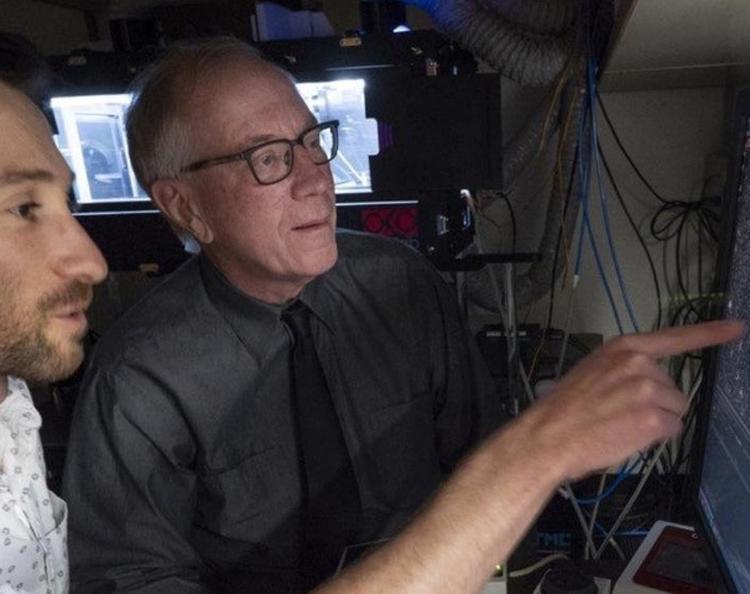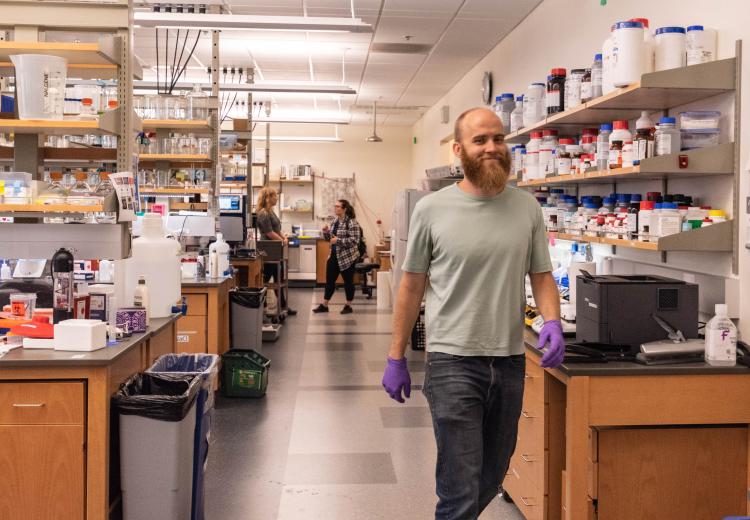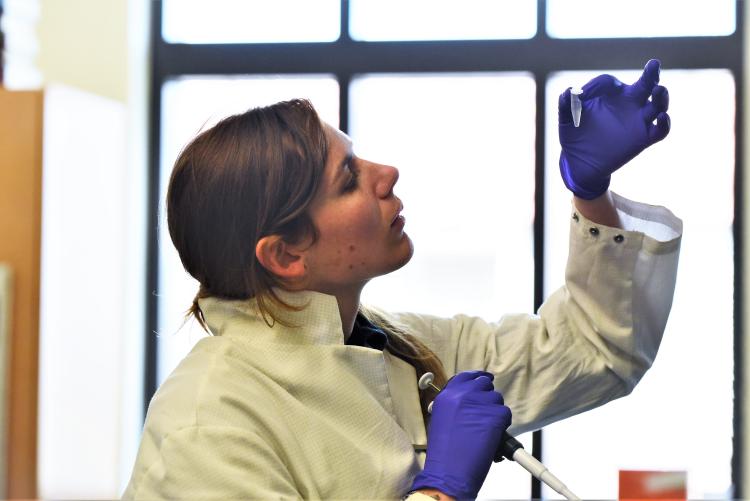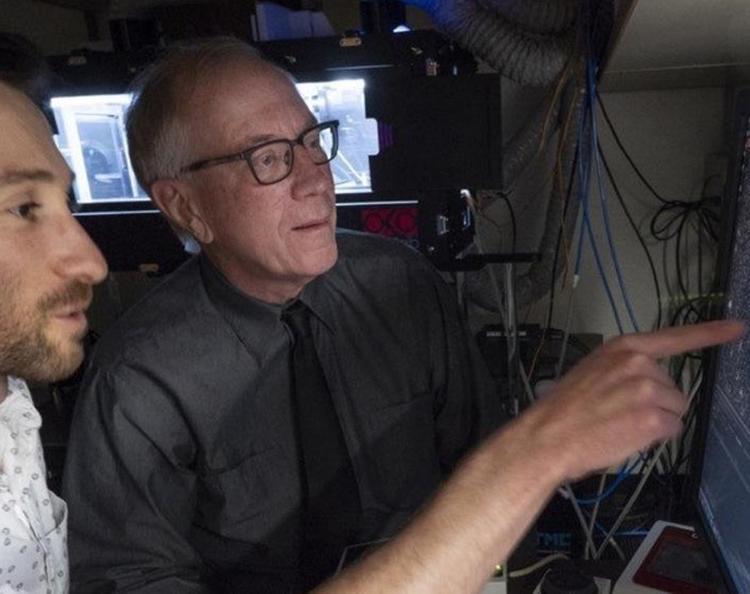Research Test Page
Since 1986, Biochemistry at the University of Colorado Boulder has offered a world-class interdisciplinary research, education, and training environment in a beautiful mountain setting. The Department of Biochemistry began as a semi-independent division within the Department of Chemistry and Biochemistry, and became a separate department in 2018.
Nearly the entire Biochemistry Department is located on CU's east campus in the Jennie Smoly Caruthers Biotechnology Building. This world-class facility enables a collaborative research environment that gathers diverse investigators from other departments, including Chemical and Biological Engineering and the BioFrontiers Institute.


Current research in the department spans a wide range of fields, from biophysical chemistry to cellular and molecular biology. Specific areas of focus in the Biochemistry Department are:
- Nucleic acid biochemistry, including RNA structure and function
- Mechanisms of transcription and replication
- Signal transduction and cell cycle regulation
- Structural biology, including X-ray and electron microscopy
- Proteomics and bioinformatics
An outstanding feature of the environment in Biochemistry is the interactive and collaborative nature of the research, which has a broader effect on the whole university community.
Who is Biochemistry?
Biochemistry has over 150 researchers, currently consisting of 17 regular tenure track faculty (11 Full, 3 Associate and 3 Assistant Professors), 5 research faculty, about 70 graduate students, about 35 postdoctoral fellows, and about 30 technical staff. About 60-70 undergraduates obtain bachelor’s degrees in Biochemistry every year. Approximately 30% of these students perform undergraduate research and about 15% graduate with Honors by completing an Honors thesis.
- Learn more about our Biochemists below
Learn more about our Biochemists
A vibrant research program
2010-2016 members of the Biochemistry Department published over 800 articles in scholarly journals. Overwhelmingly these papers include graduate students, postdoctoral fellows, and undergraduate students as coauthors.
The Biochemistry Department has a vibrant graduate program and also has two NIH-funded pre-doctoral training programs – one in Signal and Cellular Regulation and a second in Molecular Biophysics. Approximately 60% of the recent Ph.D.s in the Department go on to perform postdoctoral research and most graduates end up with a position in academia or in the biotechnology or pharmaceutical industry.
The Division also participates in community education and science outreach programs, examples include: Science Community Outreach Program and Education (S.C.O.P.E.) and Partnerships for Informal Science Education in the Community (PISEC).

Biochemistry currently includes
- Over 140 researchers
- 21 tenure track faculty
- 1 research faculty
- 2 teaching professors
- ~75 Ph.D. students
- ~20 postdocs
- ~15 technical staff
- 7 administrative staff
- ~400 undergraduate Biochemistry majors
The Biochemistry faculty include
- A Nobel Laureate
- Five members of the National Academy of Sciences
- Three Howard Hughes Investigators
Faculty Awards
- NIH MERIT Award
- NIH Career Development Award
- NSF CAREER Award
- NIH Pioneer Award
- Guggenheim Fellowship
- Pew Scholar
- Beckman Young Investigator
- Searle Scholar
- University Distinguished Professor
A vibrant research program 

2010-2016 members of the Biochemistry Department published over 800 articles in scholarly journals. Overwhelmingly these papers include graduate students, postdoctoral fellows, and undergraduate students as coauthors.
The Biochemistry Department has a vibrant graduate program and also has two NIH-funded pre-doctoral training programs – one in Signal and Cellular Regulation and a second in Molecular Biophysics. Approximately 60% of the recent Ph.D.s in the Department go on to perform postdoctoral research and most graduates end up with a position in academia or in the biotechnology or pharmaceutical industry.
The Division also participates in community education and science outreach programs, examples include: Science Community Outreach Program and Education (S.C.O.P.E.) and Partnerships for Informal Science Education in the Community (PISEC).

Biochemistry currently includes
- Over 140 researchers
- 21 tenure track faculty
- 1 research faculty
- 2 teaching professors
- ~75 Ph.D. students
- ~20 postdocs
- ~15 technical staff
- 7 administrative staff
- ~400 undergraduate Biochemistry majors
Biochemistry Funding (2022)
$ 39,797,430
Total current external awards
~$ 10,000,000


